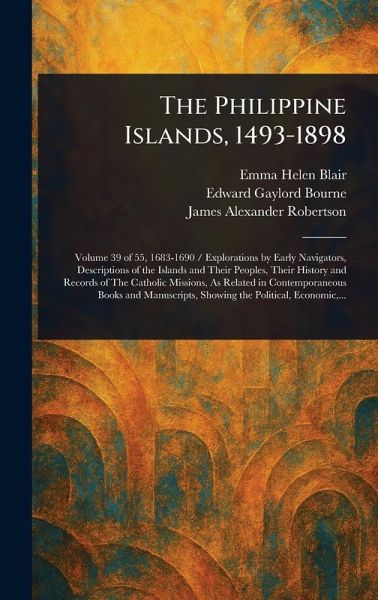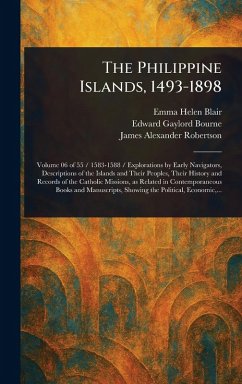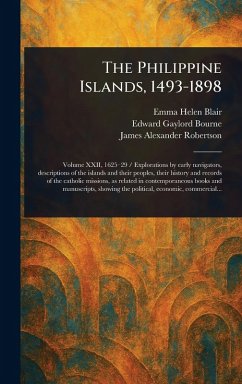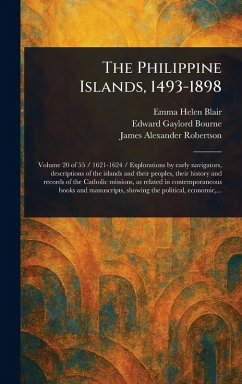
The Philippine Islands, 1493-1898
Versandkostenfrei!
Versandfertig in über 4 Wochen
30,99 €
inkl. MwSt.

PAYBACK Punkte
15 °P sammeln!
Delve into the rich and complex history of the Philippines with "The Philippine Islands, 1493-1898, Volume 39 of 55." This meticulously prepared volume offers a unique glimpse into the Spanish colonial period of the Philippine Islands, spanning from 1493 to 1898. A crucial resource for understanding the colonial history of Southeast Asia, this collection of historical documents sheds light on the demarcation line of Alexander VI and its impact on the region. Explore naval and military history through firsthand accounts and official records. This volume, part of a comprehensive series, provides...
Delve into the rich and complex history of the Philippines with "The Philippine Islands, 1493-1898, Volume 39 of 55." This meticulously prepared volume offers a unique glimpse into the Spanish colonial period of the Philippine Islands, spanning from 1493 to 1898. A crucial resource for understanding the colonial history of Southeast Asia, this collection of historical documents sheds light on the demarcation line of Alexander VI and its impact on the region. Explore naval and military history through firsthand accounts and official records. This volume, part of a comprehensive series, provides invaluable insights into the political, social, and cultural landscape of the Philippines under Spanish rule. A vital addition to any collection focusing on world history and the intricate dynamics of colonial power. This work has been selected by scholars as being culturally important, and is part of the knowledge base of civilization as we know it. This work is in the public domain in the United States of America, and possibly other nations. Within the United States, you may freely copy and distribute this work, as no entity (individual or corporate) has a copyright on the body of the work. Scholars believe, and we concur, that this work is important enough to be preserved, reproduced, and made generally available to the public. We appreciate your support of the preservation process, and thank you for being an important part of keeping this knowledge alive and relevant.














